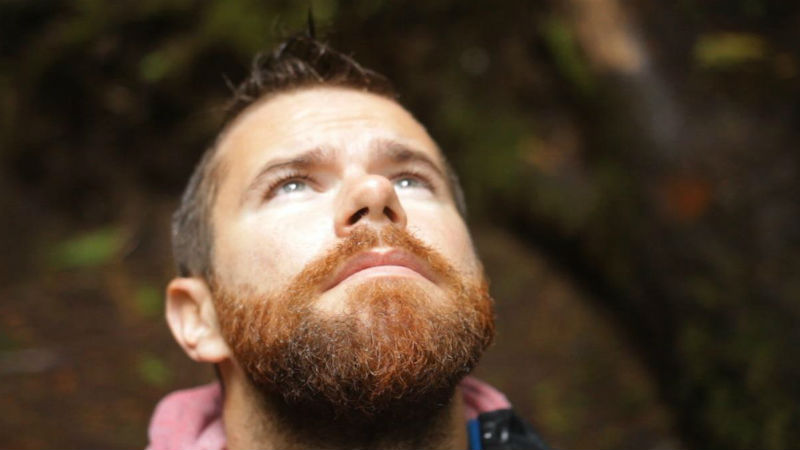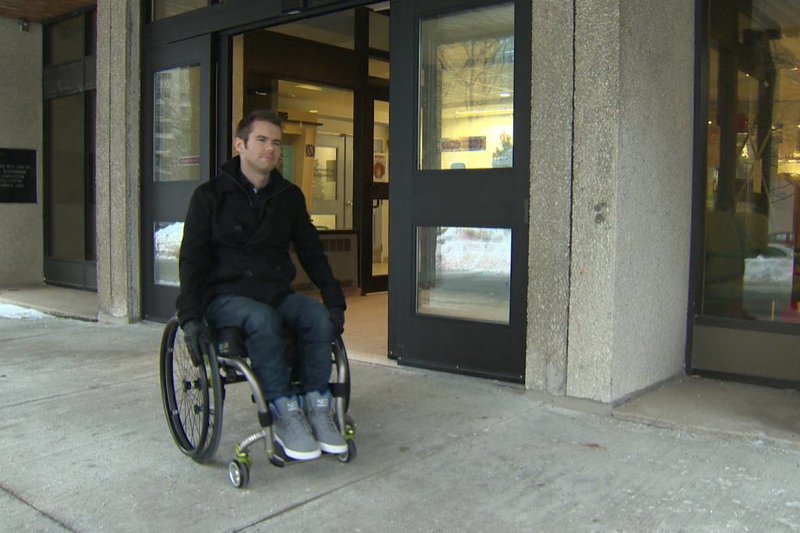




Springing up idyllic appearing super 16mm footage of Canadian wilderness, Love, Scott (Laura Marie Wayne, 2018) does not start off as a regular documentary on an inspirational figure for the LGBT community. The victim of a horrible hate crime, committed against him in New Glasgow in 2013, Scott Jones, in the film’s brisk 76- minutes running time, confronts the ramifications of his attach head on.
Equipped with a feminine melancholic poetical voiceover- all from the perspective of Scott’s best friend- the slow tone induces one into a contemplative state of thinking. Recalling the process of cutting in the editing room, the footage is spliced together hastily. Intersected into three sections, the episodes lack any true clarity, effectively serving little purse other than for the narrator to describe. Photogenic, whilst all natural archive footage, the cinematography, merging with the voice over, sustains this lulling tone.

Swiftly cutting to its subject matter, Scott Jones, around his home in rural Nova Scotia, Canada, the free-flowing camera copiously lingers on his bearded face. As Scott finishes his opening discussion upon ‘the attack’, which occurred when returning home from Korea, the camera zooms out to reveal the fact he is wheelchair bound. Viewing it from both sides, the filmmakers could possibly be inserting a startling expose to shock the audience in its early stages. On the reverse side of the argument, it’s hard to ignore that the slow exposure of such a key element does not glamorise or idealise his recent disability. Occurring moments after referring to the hate crime committed against him, which is not legally recognized by the state, its a documentary with a tight focus on this heinous act committed upon Scott.
Absorbed in the natural beauty around him, Scott is constantly filmed immersed in such surroundings. Alongside his sister, they perform a Christian song of praise to oneself on a rock overlooking a tranquil river. The repetition of water imagery elicits the constant flow of life- regardless of good or bad periods. Emerging as a pivotal part of his life, his faith in choir propels him forward through the darkness of his disability. Interacting with the filmmaker in a form that feels as though it is just two friends talking, the personal stories told to the camera throughout its brief running time never feel stretched out or overly long. The latter impression is prominent in the final third act where Scott contemplates forgiving his attacker. Situating the camera far away during moments of him choral directing, the utilization of zoom adds a voyeuristic element to proceedings. In these flourishing moments of happiness for Scott, we see how the human spirit prevails over dark times.

Adding to the natural ability of Scott to directly talk to the camera, unbroken takes accompany the deeply personal tales. Working as the antithesis to the narrative archive footage that is asserted in a brisk manner, Wayne’s takes create verisimilitude. Occasional shooting out of focus shots varies the cinematic language of Love, Scott. Typical of independent filmmaking, it only truly lands a blow in one engaging nighttime drive filming. Aiding his continual presence in the film, surprisingly for a documentary subject, Scott has an alluring on-screen presence. Combined with his occasionally charming nature, Love, Scott is fortunate to have a focus who feels so natural around camera equipment.
The result of its accumulative emotive story, Laura Marie Wayne’s first full-length feature documentary certainly has its cinematic and affecting moments. Still, with a final act that feels out of place against the initial two acts, Love, Scott has enough impactful embellishments to produce a redeeming quality. What is undeniable, however, is that Scott Jones is a beacon of hope to us, LGBT or not, to keep the faith and endure the worst life has to offer.
Love, Scott is showing at BFI Flare: LGBT Film Festival 2018.
















